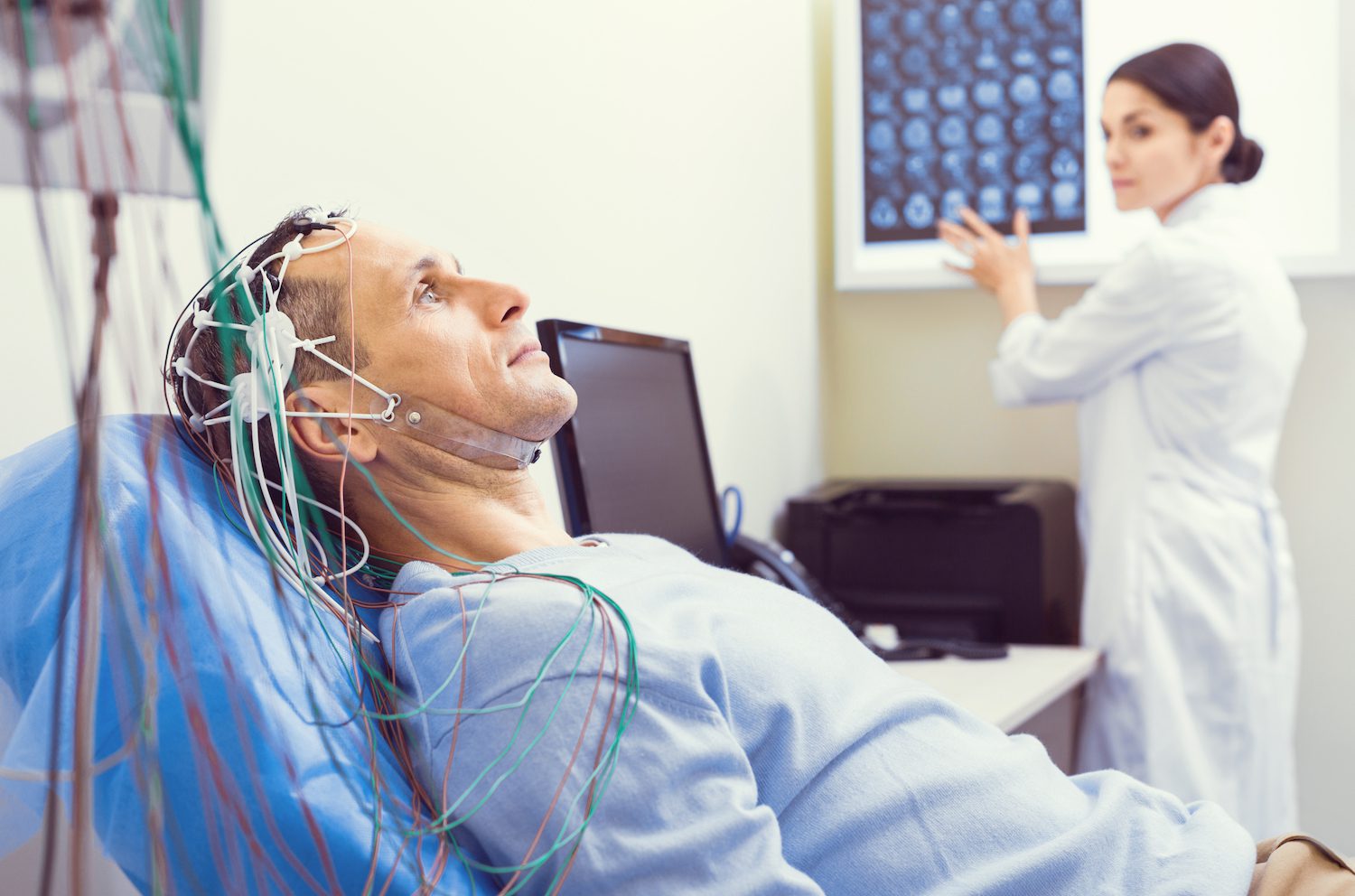Brainwave Bonanza: Exploring Biofeedback and its Impact on Mental Wellbeing
In our fast-paced world the quest for innovative stress management and mental wellbeing techniques has led us to the doorstep of biofeedback a groundbreaking approach that empowers individuals to harness the power of their own minds to improve health. This deep dive into biofeedback reveals its mechanisms the remarkable benefits it offers for mental wellbeing and essential dietary tips that could amplify its effectiveness.
Understanding Biofeedback: The Bridge Between Mind and Body
Biofeedback stands at the forefront of mental wellness innovations offering a non-invasive method that teaches individuals to control bodily processes that are typically involuntary. Through sensors that monitor physiological activities such as heart rate muscle tension and brainwave patterns biofeedback provides real-time feedback to help users adjust their responses to stress or stimuli. This real-time insight paves the way for heightened self-awareness and control over one’s physical and mental state.
How Does Biofeedback Work? Demystifying the Science
At its core biofeedback is about learning and adaptation. When you understand how your body reacts to stress or anxiety you can take proactive steps to influence those responses. By visualizing or hearing feedback on your body's physiological data you're essentially training your brain to regulate those responses actively. This could mean lowering your heart rate through deep breathing or reducing muscle tension through relaxation techniques effectively addressing the root causes of stress and anxiety.

Understanding the Mechanism
- Monitoring Physiological Signals: Biofeedback starts with the use of sensors and electrodes attached to the skin. These devices monitor and gather data on various bodily functions such as heart rate muscle tension skin temperature and brainwave patterns.
- Real-Time Feedback: The collected data is fed back to the individual in real-time through a computer monitor sounds or lights. This feedback represents the body's physiological states and responses to stress or relaxation.
- Awareness and Recognition: By receiving immediate information about their physiological processes individuals become more aware of how their bodies react to stress anxiety or relaxation.
Learning and Control
- Establishing a Baseline: Initially biofeedback helps in establishing a baseline of how one's body responds in a relaxed state versus a stressed state. This baseline is crucial for understanding and recognizing the changes that need to be made.
- Learning Through Feedback: As individuals receive feedback they start to understand how thoughts feelings and behaviors affect their physiological responses. This understanding is pivotal in learning how to control these responses consciously.
- Control and Regulation: Through techniques such as deep breathing progressive muscle relaxation or visualization individuals learn to alter their physiological responses. For instance reducing heart rate or relaxing tense muscles in response to stress.
Application and Mastery
- Practice and Repetition: Like any skill the ability to control physiological responses improves with practice. Regular biofeedback sessions help individuals refine their control over their body's responses.
- Transfer of Skills: Over time individuals learn to apply the control and relaxation techniques without biofeedback equipment effectively managing stress and emotional states in their daily lives.
- Autonomous Regulation: The ultimate goal of biofeedback is for individuals to reach a point where they can regulate their stress responses emotional states and physiological well-being autonomously leading to improved health outcomes.
Psychological and Physiological Harmony
- Enhanced Mind-Body Connection: Biofeedback strengthens the connection between the mind and body enhancing self-awareness and the ability to influence one's own physical and mental health.
- Empowerment and Self-Efficacy: By mastering biofeedback techniques individuals feel more empowered and in control of their health contributing to overall well-being and resilience.
- Personalized Health Strategies: Biofeedback provides personalized insights into one’s health allowing for tailored strategies that address specific stressors and health concerns making it a versatile tool for mental and physical health.
By demystifying the science behind biofeedback it becomes clear how this innovative approach empowers individuals to take control of their mental and physical well-being through increased self-awareness and the ability to regulate physiological responses.
The Multifaceted Benefits of Biofeedback
Biofeedback's impact on mental well being is profound and multifaceted. Here are just a few benefits it offers:
- Stress Reduction: By teaching users to recognize and control their physiological stress indicators biofeedback can significantly lower stress levels.
- Improved Anxiety Management: It equips individuals with the tools to calm their mind and body offering a powerful method to manage anxiety.
- Enhanced Emotional Regulation: Users learn to maintain a balanced emotional state even in challenging situations promoting overall mental resilience.
- Better Sleep Patterns: Through relaxation techniques and stress management biofeedback can lead to improved sleep quality and duration.
- Optimized Performance: Athletes and professionals use biofeedback to enhance focus performance and recovery.
Integrating Biofeedback into Your Life: Practical Applications
Incorporating biofeedback into your routine doesn't require drastic changes. It can be as simple as using wearable devices that monitor heart rate variability (HRV) to practice stress management techniques throughout your day. Alternatively dedicated biofeedback sessions with a practitioner can offer tailored strategies and deeper insights into your physiological responses guiding you toward a more balanced state of mind.
The Synergy of Biofeedback and Other Mental Wellbeing Techniques
Biofeedback doesn't exist in isolation; it complements other mental wellbeing techniques beautifully. Combining biofeedback with mindfulness meditation yoga or cognitive-behavioral therapy (CBT) can amplify its stress-reducing and emotional regulation benefits. This holistic approach to mental wellbeing harnesses the strengths of each method leading to more comprehensive and lasting improvements in mental health.

What Food Composition Helps Boosting Biofeedback Effectiveness?
Diet plays a crucial role in enhancing the effectiveness of biofeedback. Certain foods can improve brain function reduce inflammation and support overall mental health making biofeedback techniques more effective. Here's what to include in your diet:
- Omega-3 Fatty Acids: Found in fish flaxseeds and walnuts these nutrients support brain health and emotional regulation.
- Antioxidants: Berries leafy greens and nuts are rich in antioxidants which combat oxidative stress and support cognitive function.
- Complex Carbohydrates: Whole grains legumes and vegetables provide steady energy to the brain aiding concentration and relaxation techniques.
- Magnesium-Rich Foods: Pumpkin seeds spinach and bananas are high in magnesium which can help reduce anxiety and improve sleep quality.
- Probiotics: Foods like yogurt kefir and fermented vegetables support gut health which is linked to mood regulation and stress response.
Incorporating these nutrients into your diet can bolster the brain's resilience and responsiveness to biofeedback training enhancing your overall wellbeing.
Conclusion
As we navigate the complexities of modern life biofeedback emerges as a beacon of hope for those seeking to improve their mental wellbeing. By blending the power of technology with the innate capabilities of the human body and mind biofeedback offers a pathway to enhanced mental resilience reduced stress and a more balanced emotional state. Coupled with a supportive diet rich in brain-boosting nutrients biofeedback's potential to transform lives is truly remarkable. Whether you're battling stress seeking to improve your emotional regulation or simply aiming for a state of calm and centeredness biofeedback represents a forward-thinking approach to mental wellness that aligns with our natural rhythms and capabilities. As we continue to explore and embrace these advanced techniques the promise of a healthier more harmonious state of mind becomes an attainable reality for all.





